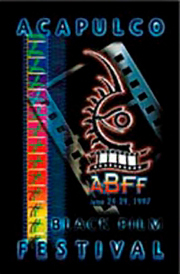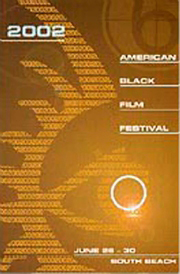get these nets
Veteran

In 1997, Jeff Friday, founder and CEO of Jeff Friday Media, was working as the film division president of UniWorld Group, a prominent multicultural advertising agency headquartered in New York and founded by legendary ad world maven Byron E. Lewis. In January of that year, in search of new clientele within the entertainment industry, Friday headed to the Sundance Film Festival. It was the first film festival he had ever attended. It was also the year writer-director Theodore Witcher’s award-winning “Love Jones” screened at the fest, ushering in an era of what Friday calls “the glory days of Black cinema.” That film, and the experience of seeing it at Sundance, altered the trajectory of Friday’s career.
“This was right around the time of such films as ‘How Stella Got Her Groove Back,’ ‘Love and Basketball,’ and Spike Lee,” Friday recalls. “‘Sex, Lies and Videotape’ had just happened and there was a ton of buzz around it. ‘Love Jones’ became a classic, and it was proof that good stories are universal, that it doesn’t matter what color the actors, director or writers are. At Sundance, I saw an incredible event — and I don’t mean this at all in any sort of disparaging way — but it was also an event that was primarily white and male, like the rest of the business at that time. I saw very few people of color. I saw very few women. I thought, this is great, but where are all the Black people? Where is all the diversity?”
From that moment onward, Friday, “not one to complain but rather create change and make an impact,” he says, was determined to foster an environment in which Black filmmakers and artists could showcase their talents and rise professionally in the biz. And so he co-founded, along with Lewis and Warrington Hudlin, the Acapulco Black Film Festival.

Six months after that watershed Sundance experience, the Acapulco Black Film Festival launched its inaugural event in June. And while Acapulco might seem like a random spot in which to kickstart a Black film fest, it was a convergence of timing, access and kismet that brought it all together.
“One of our largest advertising clients was the Mexico ministry of tourism — we were developing ad campaigns to bring upscale Black travelers back to Mexico, and also to revive the image of Acapulco as a Hollywood playground — and the Ministry of Tourism just went crazy over this idea to bring a film fest there,” says Friday. “They said, bring on Acapulco. And so we did.”
That first year, 90 people attended the fest. “Halle Berry was the first person we called,” notes Friday. “Right away, she said yes.”
The Mexican government chartered planes and, along with Berry, artists such as Bill Duke, Melvin Van Peebles, John Singleton, Nia Long, Morgan Freeman and Regina King flew down.
“The bar was so low — we had 14 films screening that year,” says Friday. “We honored Halle as a rising star and, immediately, a camaraderie was formed, and that’s what really made it work. There was a spirit in the air, it felt like a homecoming of close friends. This was also a time before social media, before cell phones took off. That’s the miracle of it all.”
In 2002, after acquiring full rights to the name, Friday re-branded the fest as the American Black Film Festival and relocated its base to Miami.

“It just happened to work out that Acapulco and American form the same acronym,” says Friday.
Now in its 25th year, ABFF, a subsidiary of Jeff Friday Media, is a flourishing powerhouse event. The fest welcomes some 7,000-10,000 attendees each year, functioning not only as a showcase for cinematic talent, but also as a launchpad for Black artists working both before and behind the camera. This year, with pandemic-era safety concerns still afloat and the coronavirus impacting people of color at disproportionate rates, ABFF celebrates its landmark quarter-century anniversary Nov. 3-28 via its global online platform ABFF Play.
“It was the toughest decision I’ve ever had to make around the festival planning ever,” says Friday of the decision to keep things virtual. “And it was strictly a business-slash-social decision. We saw the numbers ticking up and the Delta variant on the rise, and we just didn’t think it was in the best interest of our community to bring people together. Health and safety always comes first.”
That said, the selection of films screening at ABFF will not be compromised. To wit, “King Richard,” Reinaldo Marcus Green’s biopic charting the rise of tennis icons Venus and Serena Williams under the tutelage of their indefatigably optimistic father, Richard (Will Smith), opens the fest. A slate of independent film screenings, panels and discussions and networking events will follow. That “King Richard,” an awards-season contender, is kicking off the fest marks a “full circle moment” for Green, whose “Stone Cars” was a 2013 finalist in ABFF’s short film competition, created and sponsored by HBO.